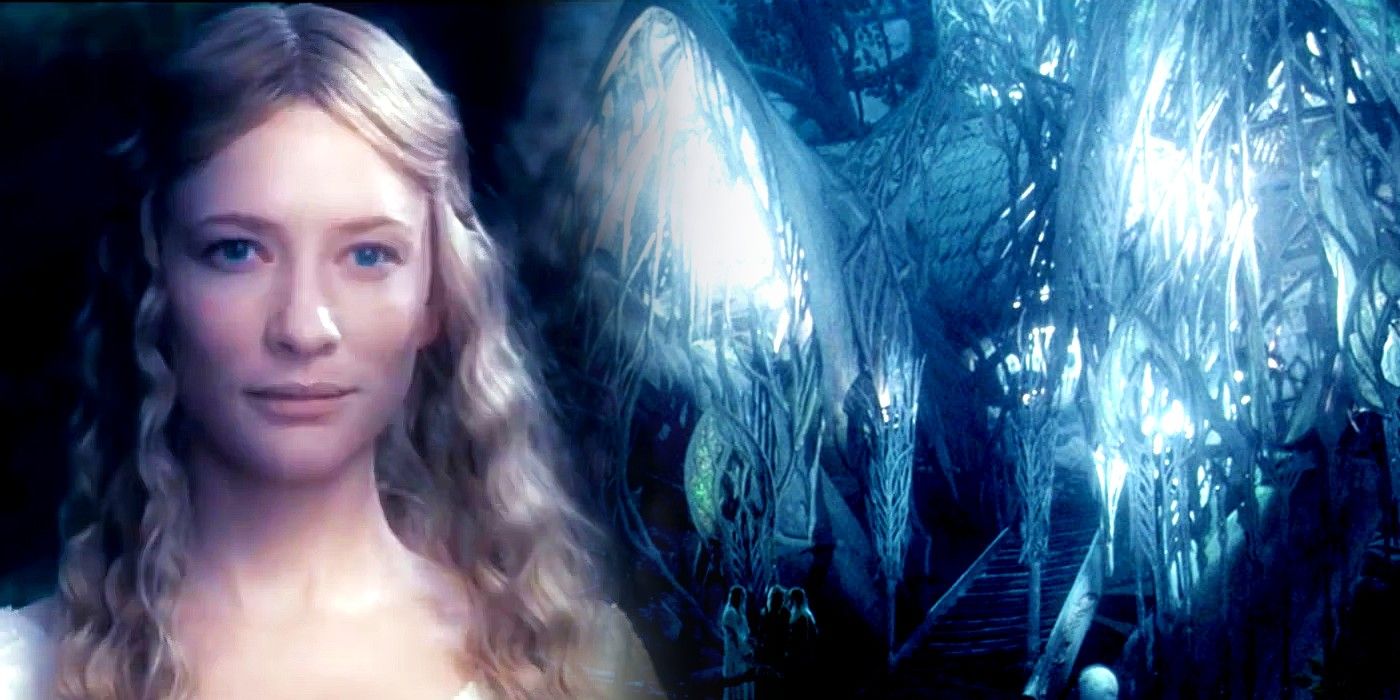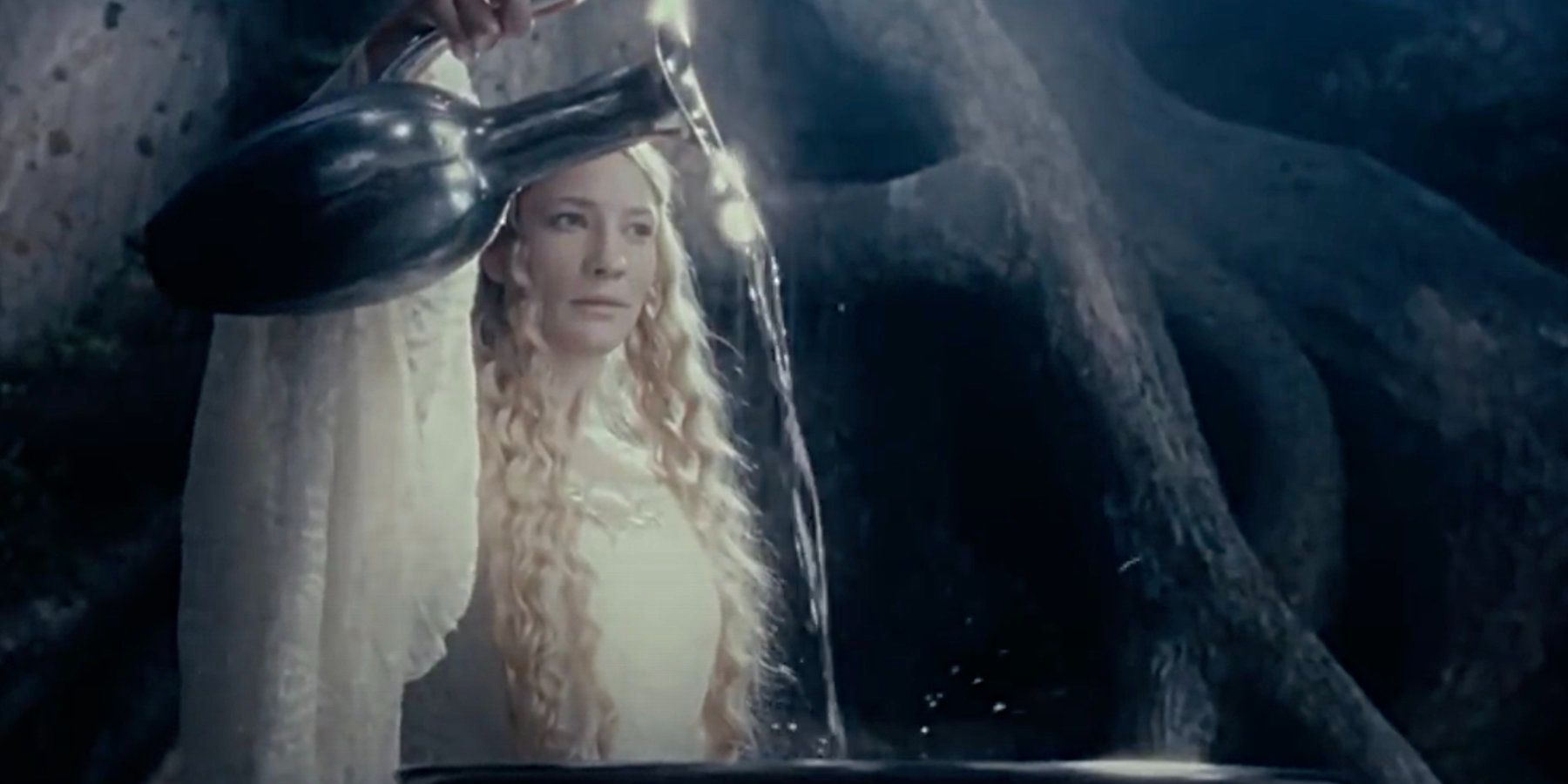Tolkien designed The Lord of the Rings' Elves to be regal, stoic and strong, which made sense because they were immortal, otherworldly beings. Luckily, Peter Jackson's adaptation did a great job of portraying those qualities. Hugo Weaving's Elrond was one example. Elrond had lived for thousands of years, and he showed off his hard-earned wisdom as he spearheaded the Council of Elrond. Yet Cate Blanchett's Galadriel was an even better example of Elven majesty and strength. She was a regal queen, but she was also an extremely powerful being.
After Sauron was defeated, Galadriel used her magic to cast down the tower of Dol Guldur and cleanse its pits. It was a notable show of strength, but it was far from her most impressive deed. The hardest thing that Galadriel ever did was refuse to take Sauron's Ring as her own. In one way, it was a personal sacrifice, but it was also much more than that. Here's why.
Galadriel Always Wanted Power - But Gave it Up
Galadriel was born in the Undying Land of Valinor. She was the granddaughter of King Finwë, which meant she was important, but she was more than that. She was exceedingly fair; she was strong, and she was wise. But Galadriel wasn't satisfied. She wanted to use her strength and wisdom to rule. That's the real reason she followed Fëanor to Middle-earth -- so that she could set up a kingdom of her own. Thousands of years later, she got her wish, and she became queen of Lothlórien. Then, Frodo showed up.
Galadriel allowed Frodo to look into her magical mirror, but then, he freely offered her the One Ring. Accepting would have given her authority and dominion, and no one would have the power to stop her. It was everything that she had ever wanted, and maybe a younger version of herself would have accepted. But through her wisdom, she could see the truth. Even if she took the One Ring and defeated Sauron, she would have eventually faded. Having seen the light of Valinor, she couldn't stay in Middle-earth indefinitely. And she needed to finally refuse power to be accepted back into Valinor.
Galadriel's Refusal Doomed Lothlórien
Refusing the One Ring wasn't just personal for Galadriel. It was also about the kingdom of Lothlórien. The odds that Frodo would succeed on his quest were slim, which meant that Sauron was probably going to reclaim the One Ring. In turn, that would have doomed Lothlórien because Galadriel wasn't powerful enough to single-handedly resist all the Dark Lord's Ring-fed strength.
On the flip side, there was a chance that Frodo could succeed. Unfortunately, Lothlórien would also be doomed if that happened. Assuming the One Ring was destroyed, Galadriel's ring would also start to fade, causing Lothlórien to lose its glory and magic. So, when Galadriel refused the One Ring, she wasn't just sacrificing her desire to rule. She knew that she was sacrificing her kingdom and its well-being for the sake of peace in Middle-earth. And in the end, Galadriel was right. Lothlórien started to fade during the Fourth Age, and most of its inhabitants went to live in Rivendell. But the sacrifice was worth it because the Age of the Elf was over, and most of them were going back to Valinor anyway.



